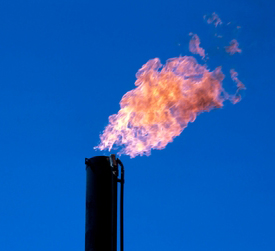Global Scans · Decarbonization · Weekly Summary

- [New] Reducing bus and rail fares and increasing motoring and aviation taxes could cut carbon emissions from transport by 13% by 2025. Steer
- [New] With the knowledge that sustainable investment returns come from a healthy and fairly-rewarded workforce, the low-carbon economy of 2030 is one with greater job security for all. ShareAction
- [New] The cost of compliance with the ICAO CORSIA carbon offsetting scheme is anticipated to grow to $1.7 billion for 2026, up from $1.3 billion for 2025. GreenAir News
- [New] Low-emissions technologies are expected to account for almost 90% of investment in electricity into the future and that for every dollar invested in fossil fuels, about $1.7 are now going into clean energy sources such as solar power. PubMed Central (PMC)
- [New] Beyond road transport, demand in hard-to-electrify sectors like aviation and maritime shipping remains strong, with low-carbon alternatives not expected to reach scale before 2035. DNV
- [New] Moab, Utah, a town of about 5,000, has implemented an emission-reductions program with a goal of 100% renewable energy by 2030. Smart Cities Dive
- [New] Cities adopting MaaS could see a 20% reduction in transportation-related carbon emissions by 2030, thereby improving air quality. Avenga
- [New] As nations worldwide commit to aggressive decarbonization targets, the demand for materials essential for renewable energy infrastructure, such as solar panels and electric vehicles, will only intensify. FinancialContent
- [New] Petrobras' 2026-30 strategic plan reaffirms its focus on exploration and production, commitment to operational efficiency and capital discipline, while accelerating implementation of investments in low-carbon businesses and energy transition. Moody's
- [New] X-energy, supported by Amazon, is seeking to build SMRs that could provide carbon-free power to energy-intensive infrastructure such as cloud services and AI data centers. Interesting Engineering
- [New] Colorado's six remaining coal-fired power plants are scheduled to close or convert to natural gas, which emits about half the carbon dioxide as coal, by 2031. Fortune
- [New] The U.S. faced a shortage of approximately 80,000 truck drivers in 2023, a figure projected to exceed 100,000 by 2026 due to an ageing workforce and low entry rates. Market Data Forecast
- [New] Carbon storage will almost certainly play a pivotal role in any future where global net-zero CO2 or greenhouse gas emissions is achieved. Reccessary
- [New] Geological carbon storage is not a limitless backstop - and assuming otherwise puts the world at risk of irreversibly exceeding the Paris Agreement's 1.5 C threshold for global warming. Reccessary
- [New] We find that - once technical, social and environmental risks are considered - the world's available reserves of geological carbon storage are significantly more limited than most estimates suggest. Reccessary
- [New] Announce a Peak-Emission Year (~2035): Formally identifying the emissions peak will bolster India's credibility and align national planning with the 2070 net-zero roadmap. INSIGHTS IAS - Simplifying UPSC IAS Exam Preparation
- [New] Emission Intensity Reduced by 36%: Steady efficiency gains and renewable uptake have sharply lowered carbon intensity, placing India ahead of its projected 2030 trajectory. INSIGHTS IAS - Simplifying UPSC IAS Exam Preparation
- [New] In the Affordable Housing Plan, the European Commission has an opportunity to influence housing affordability by explicitly incorporating building decarbonization into its affordability strategy, fostering regional cooperation and aligning social and climate policy objectives. Bruegel | The Brussels-based economic think tank
- China-led hydrogen and ammonia regional exports will curb the development of longhaul trades and limit large carrier fleet growth, argues MSI decarbonization analyst Mariam Tzannatos. Maritime Strategies International Ltd
- Considering only projects that are operational, under construction or have reached a final investment decision, low-emissions hydrogen production can grow fivefold by 2030, reaching 4.2 million tonnes per year. IEA
- Decarbonization activity in the Humberside cluster alone could push the Anglian Water region into deficit as early as 2030, with a projected shortfall of 130 million liters per day by 2050. Yahoo News UK
- By 2050, decarbonization in the UK will require an additional 860 million liters of water per day. Yahoo News UK
Last updated: 14 December 2025
